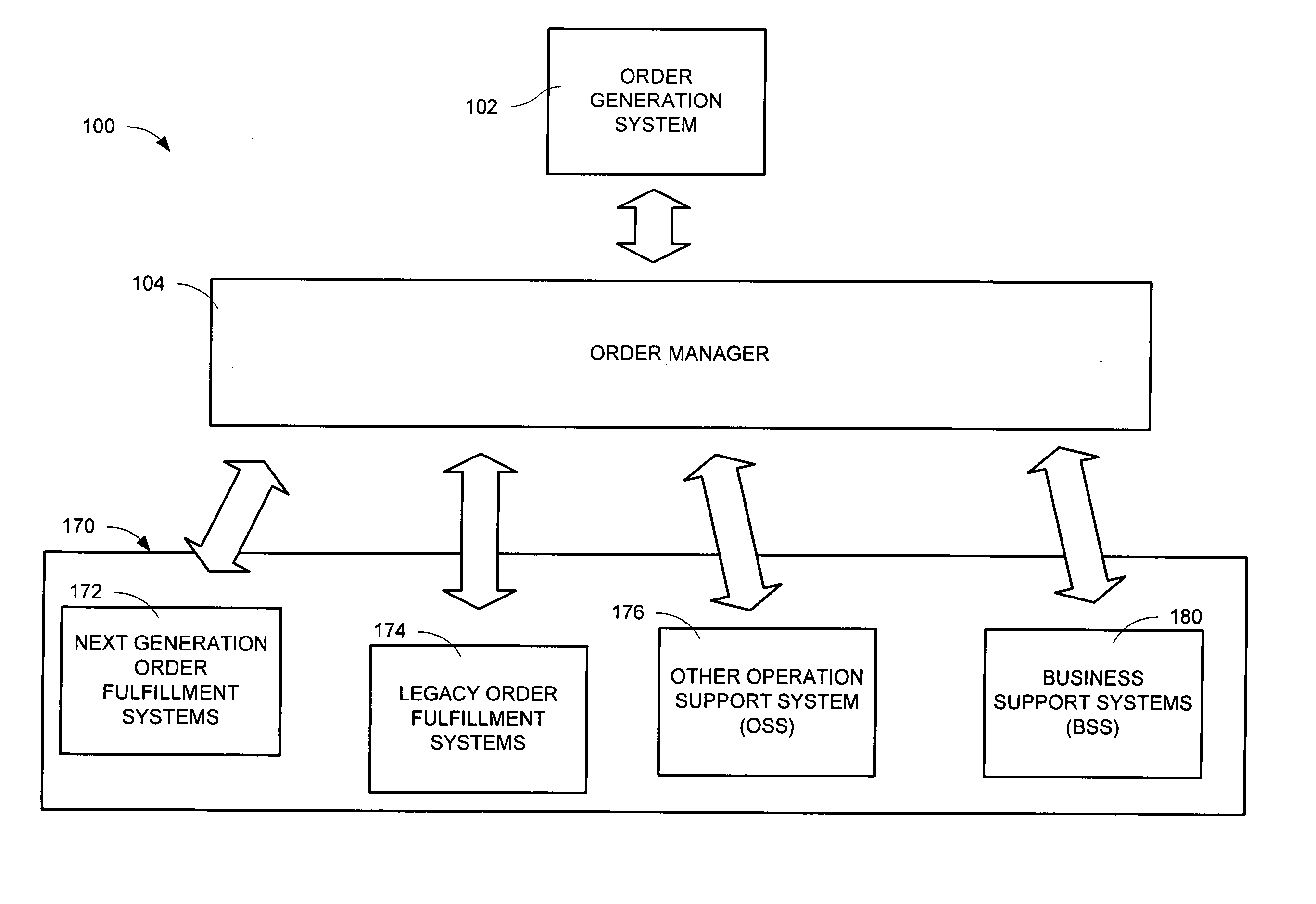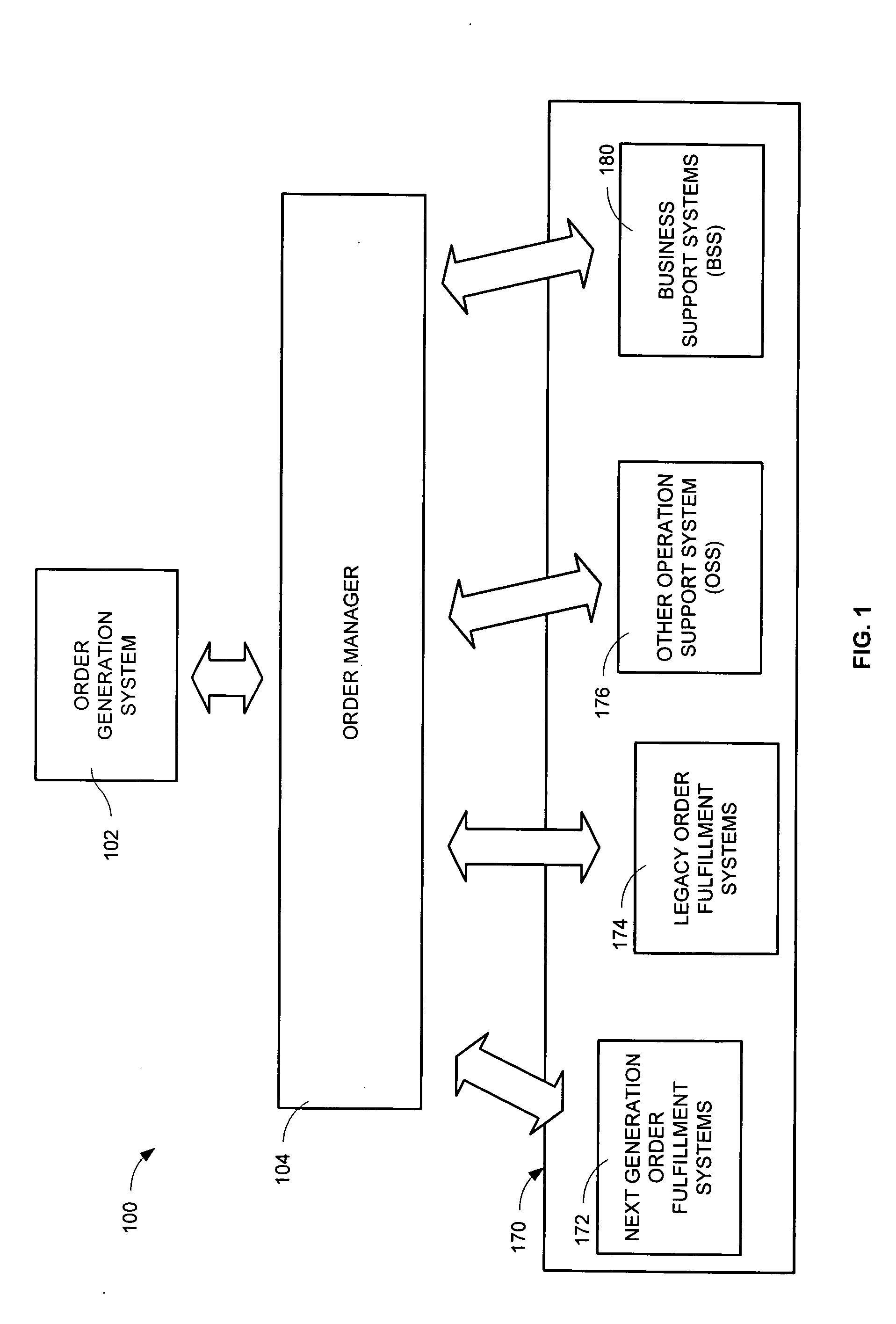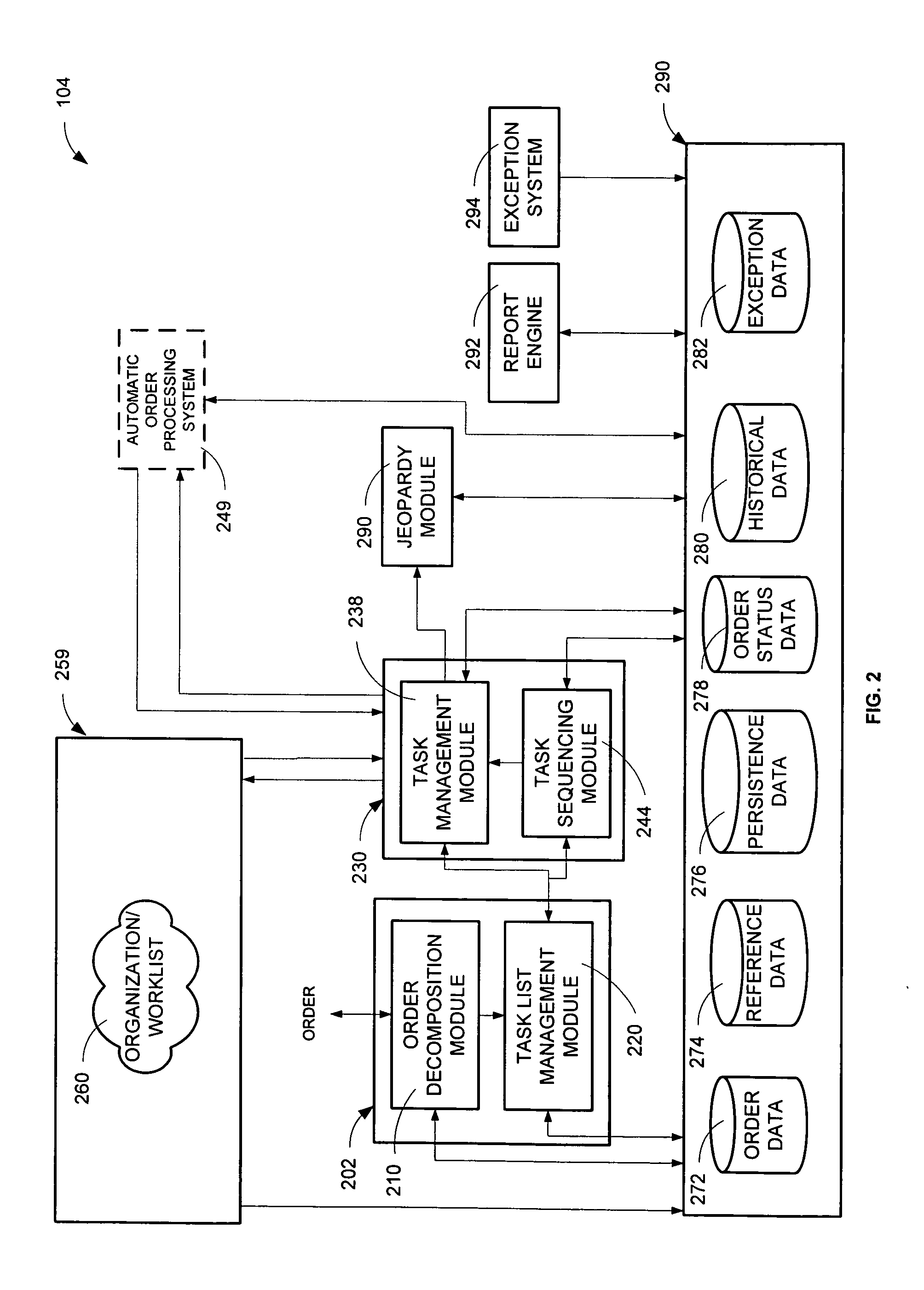Order management system
a technology of order management and management system, applied in the direction of electric controllers, instruments, ignition automatic control, etc., can solve the problems of low customer satisfaction, difficult implementation of this strategy, and often inconvenient use of pre-packaged applications
- Summary
- Abstract
- Description
- Claims
- Application Information
AI Technical Summary
Benefits of technology
Problems solved by technology
Method used
Image
Examples
Embodiment Construction
[0035] In the text that follows, many of the examples are presented in terms of managing orders for telecommunication products. Managing orders for telecommunication products is used for demonstrative purposes only. The systems and any part of the systems described in this document may, in fact, be implemented to manage orders for any products. Further, the term “product” is used in this document to denote goods, services or any combination of goods and services.
[0036] One example of a system for managing an order (an “order management system”) is shown in FIG. 1. The order management system provides a foundation for the process automation and the human workflow that are required to provision an order. As used in this document “order” refers to a request for products, including goods, services or a combination of goods and services. In addition, “provision” refers to the activities involved in and related to providing products to the entity that placed the order. In contrast with t...
PUM
 Login to View More
Login to View More Abstract
Description
Claims
Application Information
 Login to View More
Login to View More - R&D
- Intellectual Property
- Life Sciences
- Materials
- Tech Scout
- Unparalleled Data Quality
- Higher Quality Content
- 60% Fewer Hallucinations
Browse by: Latest US Patents, China's latest patents, Technical Efficacy Thesaurus, Application Domain, Technology Topic, Popular Technical Reports.
© 2025 PatSnap. All rights reserved.Legal|Privacy policy|Modern Slavery Act Transparency Statement|Sitemap|About US| Contact US: help@patsnap.com



